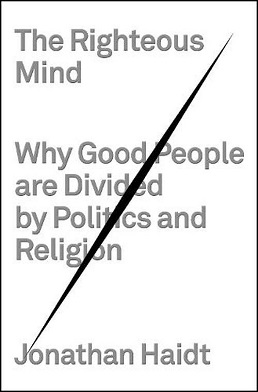

The elephant rarely changes direction in response to the rider objecting. We’re terrible at seeking evidence that challenges our beliefs… When discussions are hostile, the odds are slight.” HaidtĪffection, admiration, the desire to please another person, the elephant leans toward that person and the rider tries to find truth in the other person’s argument. “Main way we change minds on moral issues is by interacting with other people. Rider will do as a client asks but sometimes pushes back to make client revise judgement. Moral reasoning without moral intuition is bad. Therefore their capacity to evaluate individuals on the basis of social interactions is universal and unlearned. In this situation the people questioned gave a harsher response when spray released.īabies are like puppies and recognise people that are or, are not nice to them. Example: Moral survey undertaken and fart spray released. If the feeling is unpleasant then we must not like it. If the feeling is good then we decide we must like it.

When deciding what to think about something we look inward at how we’re feeling. It is highly skills at fabricating post-hoc explanations for whatever the elephant has just done. It does not really ever know what the elephant is thinking.

Rider can see into future and learn new technology but, most importantly the rider acts only as a spokesperson for the elephant. Rider evolved from elephant because it did something useful for it Moral emotions are kind of moral intuition but most moral intuition is subtle so does not rise to level of emotion. At a low level it equals visual perception and memory retrieval. At a high level it equals conscious reasoning. Reasoning why = conscious reasoning (easily disrupted by cognitive load).Ĭognition is simply information processing.Judgement and justification are separate processes When people are asked to make moral judgements they do not suffer from talk load, therefore moral decisions are intuitive. If not then it is an intuitive, emotion, automatic response. If performance suffers with a task then that task requires controlled thinking e.g. Task Load Experiment: Ask people to hold seven numbers in their head. Jefferson: Both rule like two roman emperors, governing two parts of the empire, when one drops off the other takes over. Clearly reason needs passion, needs emotion. This is the triumph of reason, which is supposed to eliminate dreadful circumstances and foolish counsel. Should you murder your parents or not? Such questions unable to answer. Every emotion every moment felt the same. Felt nothing no joy or pain, had no drop in IQ. Antonio Damasio Brain damaged patients (ventromedial and pre-frontal cortex), left with no emotion.


 0 kommentar(er)
0 kommentar(er)
